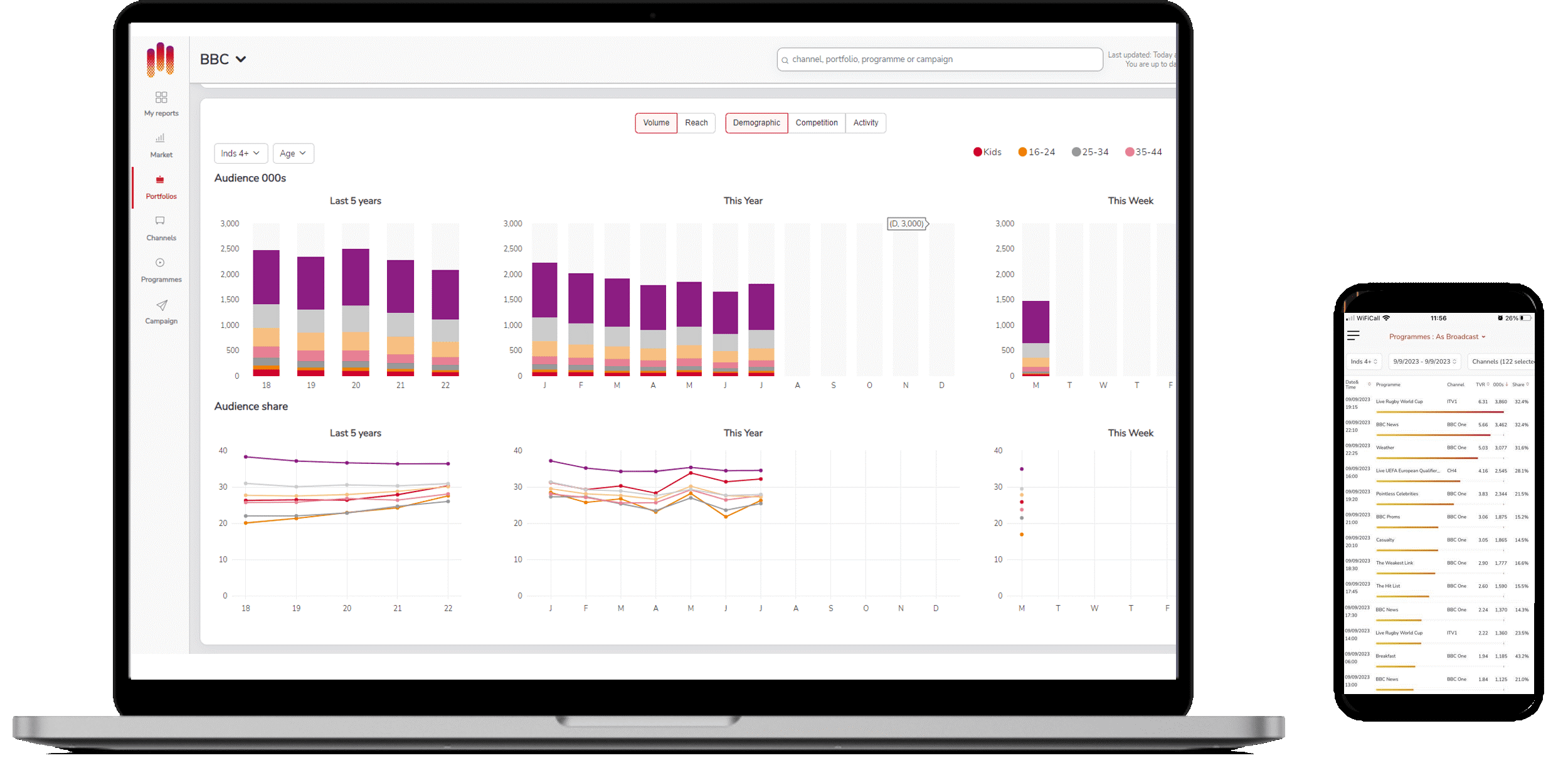The media and entertainment industry is changing at a rapid pace, driven by digital transformation and shifting viewer habits. Accurate and up-to-date insights into content performance have never been more critical.
Audiences want immersive, personalised experiences across multiple platforms, challenging media companies to deliver consistent, high-quality content that truly resonates. However, media companies face significant hurdles in meeting these expectations, including data fragmentation, integrating with legacy systems, and accurately measuring cross-platform engagement.
Challenges of a rapidly changing media landscape
One of the biggest challenges is understanding and anticipating audience behaviour. Traditional methods of collecting and analysing media data often rely on outdated tools, creating silos that hinder collaboration across departments. This lack of data integration not only affects efficiency but also limits insights into viewer preferences and content performance. Without robust data capabilities, media companies may struggle to make informed decisions about programming, distribution, and advertising.
How data visualisation empowers you and your organisation
Data visualisation and advanced analytics provide a way for media organisations to turn their data into actionable insights. By presenting complex data in an accessible, intuitive format, data visualisation tools help decision-makers quickly grasp key trends, identify content that resonates with audiences, and optimise programming strategies.
For instance, imagine a tool that analyses individual channel performance with detailed metrics such as demographics, trends, and KPI comparisons. By leveraging heat maps to visualise data, it could pinpoint peak viewing hours for specific audience segments across regions. These insights empower teams to allocate budgets strategically, invest in high-performing genres, and refine programming to better resonate with their target audience.
The benefits of data visualisation in media
- Enables storytelling: Data visualisation turns raw data into compelling narratives, making complex information easier to interpret and more relatable to diverse audiences.
- Highlights viewer engagement: Visuals bring clarity to audience behaviour, showing patterns and shifts in real-time, helping track engagement trends across various platforms and channels.
- Identifies emerging trends: Visualisation helps uncover hidden patterns, offering deeper insights into evolving audience preferences and behaviours.
- Understand your audience: By visualising data, organisations can gain a clearer understanding of their audience - who they are, what they watch, and how they interact with content across devices.
- Democratises data: Data is made accessible to all team members, from media planners to decision-makers, fostering a more collaborative approach to strategy and analysis.
- Empowers decision-making: Teams can access reliable, pre-calculated data that allows for quicker, more informed decisions, optimising media strategies and budgets based on the most relevant audience insights.
Shaping the future of media with data and analytics
As media companies continue to adapt to the digital landscape, data visualisation and analytics will play a crucial role in shaping effective strategies. Data-driven decision-making enables organisations to unlock the full potential of their data, enhancing operational efficiency and creating more meaningful audience experiences. From improving content personalisation to streamlining operations, data visualisation offers the media industry a powerful tool for navigating future challenges and maintaining their competitive edge.
At Sopra Steria, we've partnered with TRP Research to bring together expertise in data transformation and media analysis. Our collaboration has led to the development of AudEx - a comprehensive suite of software tools designed specifically for media professionals, offering advanced solutions for audience insights and data-driven decision-making.

For media organisations that aim to thrive, embracing innovative data solutions like AudEx is key. By fostering a culture of data-driven insights, media organisations can make informed decisions, optimise content strategies, and ultimately create engaging experiences that resonate with audiences. In an industry that's more connected than ever, data and technology are key to unlocking a future of sustainable growth and impactful media engagement.
Discover how AudEx can transform your media operations and decision-making.
Book a FREE demo